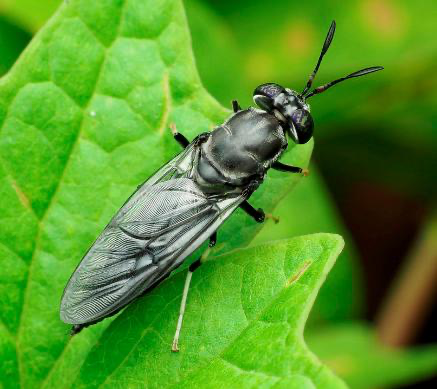Key Points
- Black soldier flies process waste into compost and sustainable feed.
- Kazakhstan joins the Global Methane Pledge to cut emissions.
- Grassroots movements are growing a culture of recycling and composting.
Black soldier flies, aptly named, are playing a key role in the fight for a more sustainable planet.
In Kazakhstan, as in many countries, this battle is challenging.
Black soldier flies: transforming waste into value
Despite the government’s pledge to achieve carbon neutrality by 2060, the green economy in Central Asia’s wealthiest nation still faces significant hurdles. Coal fuels nearly half of the country’s energy consumption, oil and gas dominate the economy, and most household waste remains unrecycled.
For Bekezhan Qairgaliev, an entrepreneur in Almaty, these challenges present opportunities. At an ecological fair, Qairgaliev shared how his black soldier fly farm processes about 400 kilograms of organic waste daily, producing 130–150 kilograms of fertilizer.
“We’re working with 27 restaurants now and want to collaborate with schools too,” Qairgaliev said.
The farm’s success hinges on the flies’ remarkable larvae, which can consume large quantities of organic waste within a week of hatching.
At the 2023 COP28 climate summit in Dubai, Kazakhstan became the first Central Asian country to join the Global Methane Pledge, committing to cut methane emissions by 30% by 2030.
Methane, a potent greenhouse gas, is primarily emitted in Kazakhstan by the oil and gas sector. Organic waste in landfills is another major source.
According to the Climate and Clean Air Coalition, black soldier fly (BSF) technology is among the most effective yet underfunded solutions for reducing methane emissions from organic waste. The flies not only produce high-quality compost but also provide sustainable feed for industries like fish farming.
Qairgaliev emphasizes that his business is profitable without government subsidies but believes authorities should promote sustainable practices and ensure household waste is sorted before collection. Past efforts, he said, were ineffective.
“Yellow containers were introduced for separate waste collection, but it failed because a single truck still collected and dumped everything at the landfill,” Qairgaliev said.
Composting and small-scale solutions for lasting change
According to oilprice, some of the waste supports local eco-entrepreneurs. For example, Yury Kirdyushkin’s Plastic Harahura project has turned 3 tons of plastic waste into art and new products over two years.
On a smaller scale, Almaty resident Leila Mukhitdinova, nicknamed “Farmer Leila,” manages a WhatsApp group called Eco-Guardians. The 100-member group discusses waste disposal tips, like composting tea bags and eco-friendly methods for discarding expired medicines.
Mukhitdinova, who hasn’t purchased new clothes in 20 years, uses waste food from group members to feed her farm animals. She’s particularly proud of the growing number of composters in the group, a rarity in Kazakhstan.



